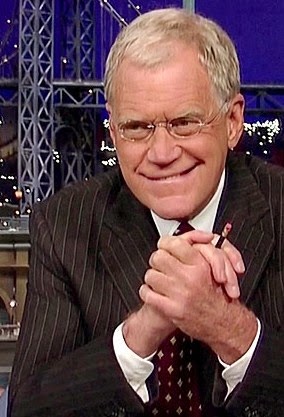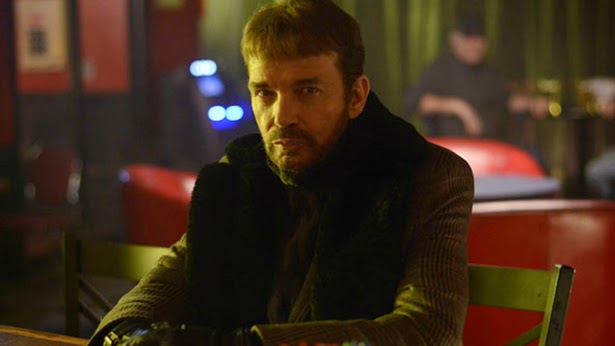 It can be strange listening to life pass by from the tiny speaker of a digital recorder. Two months ago I was in Los Angeles with dozens of other TV critics attending the winter TCA press tour. AMC had just concluded their session with Bryan Cranston, the star of the series Breaking Bad, and I scooted out into the lobby to join a press scrum with the actor. Cranston, by the way, turns 53 today.
It can be strange listening to life pass by from the tiny speaker of a digital recorder. Two months ago I was in Los Angeles with dozens of other TV critics attending the winter TCA press tour. AMC had just concluded their session with Bryan Cranston, the star of the series Breaking Bad, and I scooted out into the lobby to join a press scrum with the actor. Cranston, by the way, turns 53 today.
The one time Malcolm in the Middle star has been a favorite of mine ever since he shot a Christmas-themed TV-movie in Toronto six or seven years ago. I remember meeting him on the set in an old warehouse in downtown Toronto, near Casa Loma. He was like a kid in a candy store and couldn’t wait to show off the set, which had a giant Santa sleigh suspended from wires hung from the rafters. I thought it was pretty cool that Cranston got such a kick out of making movies and that he wasn’t blase about essentially playing for a living, like a lot of other actors–as well as a lot of the reporters who cover them. Anyway, it was time to start writing about Cranston, who won the best actor Emmy last September for the first season of Breaking Bad. (Season two premieres tomorrow night at 10 p.m.) I had an assignment for TV Guide Canada (read that feature here), so a week or so ago I found the Cranston audio file on my digi recorder and started to transcribe the press scrum session.
Anyway, it was time to start writing about Cranston, who won the best actor Emmy last September for the first season of Breaking Bad. (Season two premieres tomorrow night at 10 p.m.) I had an assignment for TV Guide Canada (read that feature here), so a week or so ago I found the Cranston audio file on my digi recorder and started to transcribe the press scrum session.
There were six or seven of us surrounding Cranston that day in January. Some scrums last two or three minutes before publicists rip the stars away and hustle them into electronic media sessions, into meet and greets with network executives or outside into limos. Cranston had no other agenda than to promote the series and he gave us a full 15 minutes.
As I listened to the conversation, I recognized one of the other press voices as belonging to Dave Waldon, an L.A.-based freelancer who passed away shortly after the January tour. Dave was 39. I wrote about his passing here in a previous TVFMF post.
Breaking Bad is about a high school chemistry teacher who finds out he has inoperable lung cancer. Desperate to provide for his family in the time he has left, he turns to a life of crime, specifically, making and selling crystal meth.
Cranston was talking about how having a death sentence hanging over your head has to profoundly change a man. Waldon kept returning to that theme; he had lived it. Back in college, he faced death until a liver transplant bought him another 18 years.
“Playing the character, have you gotten healthier in your own life?” Waldon asked Cranston. The actor said he had, doing things like hot house yoga to purge and sweat out his system. “In my own personal philosophy, there’s nothing more important than good health,” said Cranston. “You cannot be in love if you’re not healthy. You can’t appreciate it.”
Prompted by Waldon, he also talked about how the character, Walt White, had been emboldened by his death sentence, becoming a first class risk taker instead of the quiet little milquetoast he was before. Despite a prognosis of only a year to live, the character doesn’t lie down and wait for death. “We don’t go through life thinking I’m going to die some day,” said Cranston. “He loses track of that just like everybody else does.”
The implied lesson was to live every day as if it might be your last. Waldon, who, as it turned out, had days to live, already had that one down cold. For the rest of us, it couldn’t hurt to hear it again, even months later, out of the tiny speaker of a digital recorder.
I wrote more about Sunday’s return of Breaking Bad for CP but because of a conflict with an AP story it didn’t run this week. Damn, I hate when that happens. Here is part of that story below:
advertisement
When series creator Vince Gilligan (The X Files) sent him the pilot script for Breaking Bad, Bryan Cranston jumped at the chance to switch from broad comedy to dark drama. “Our first 20 minute scheduled meeting ended up being an hour and a half,” Cranston said in Los Angeles in January following an AMC Breaking Bad press conference. “I was fascinated by the script of the pilot. I couldn’t stop reading it. I called right away and said put me into this.”
What grabbed Cranston was a daring twist he’d never encountered before. Taking a character—in this case, mild mannered high school chemistry teacher Walt White—and turning him into a completely different person. Cranston sees White as being transformed “from being this milk toast, self repressed science teacher into becoming a sometimes ruthless drug dealer. Has anyone ever seen this?”
Gilligan describes it this way: he’s taking Mr. Chips and turning him into Scarface. Season Two begins Sunday at 10 p.m. E.T. on AMC, with White calculating how many more drug drops he’ll need to perform before he has enough stashed away to provide for his wife and disabled teen son. The urgency is the death sentence over White’s head: he has been diagnosed with inoperable lung cancer. That’s what forced him to partner up with street smart former student Jesse Pinkman (played by Aaron Paul). Together, they put White’s chemistry knowledge into practice by cooking and selling crystal meth.
Season Two begins Sunday at 10 p.m. E.T. on AMC, with White calculating how many more drug drops he’ll need to perform before he has enough stashed away to provide for his wife and disabled teen son. The urgency is the death sentence over White’s head: he has been diagnosed with inoperable lung cancer. That’s what forced him to partner up with street smart former student Jesse Pinkman (played by Aaron Paul). Together, they put White’s chemistry knowledge into practice by cooking and selling crystal meth.
“When you’re given a death sentence of a year to live, it changes you,” says Cranston, who shaves his head and drops close to 9 kilograms at the start of each season to approximate the ravages of chemotherapy and other cancer inhibitors. “This man is so depressed for a lack of taking chances and the opportunities he has missed. He has nothing to lose now.” Sure, dealing with ruthless drug lords is deadly and dangerous, but, as Cranston says, `”even to feel fear and anxiety is better than feeling numb.”`
And that is the through line between White from Breaking Bad and the foolish father from “Malcolm.” “Hal was breaking bad constantly,” says Cranston. “That’s what made him so fearful. He lived in fear. That was Hal’s emotional centre and that’s where a lot of the comedy stemmed from–his fear of failing at marriage, at parenthood, at his job, at everything. It was great for comedy.”
The actor believes that if you drew a Zen diagram of the two characters, “there are more similarities than just their tighty-whitey underwear,” he says. “Walt also lives in a world where he was numbed by his inability to cope with life.”
White gets a few more years this season to consider his extreme course of action. Early on, a procedure is done which allows doctors to extend White’s life expectancy. This gives him time to think about his new life of crime and whether he would rather return to his old, docile self. “I think Walt would be hard pressed to want to put the Genie back in the bottle,” says Cranston.”He can call his own shots, people are afraid of him now—wow. He’s never felt that way before.”
As an actor, Cranston embraced taking risks a long time ago. The approach has landed him memorable roles on both comedies (such as “Seinfeld”) and dramas (“Little Miss Sunshine”) and has even led to directing (including Sunday’s season premiere episode).
There was that one time, however, he went a little too far. A movie role called for a cocky, egotistical cowboy punk. “I’m just going to walk in and be just that guy,” Cranston said to himself on his way to the audition.
He walked in, ignored the casting director’s outstretched hand, sat down and put his boots on his desk.
“Get your boots off my desk,” said the director, who was not amused. Cranston knew he had already blown it. “It wouldn’t matter if I read for you now, would it?” he asked. The director agreed. Cranston walked away.
“He hated me,” says Cranston. “That’s the one thing about casting directors—they don’t have the power to say yes, but they certainly have the power to say no.”





